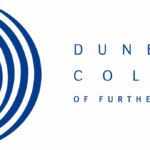To mark World Philosophy Day 2022 on 17 November, the Hugh Lane Gallery, Dublin will host “What has become of the Sublime in the 21st Century?” with Dr. Connell Vaughan, School of Art and Design, TU Dublin.
This talk will focus on the evolution of the concept of the Sublime. Famously described by philosophers in the 18th Century as an individual’s experience of the awesome and terrifying grandeur of the natural world, it was contrasted with the pleasing beauty of objects. The ability to articulate such an experience was associated with moral and civic virtue and, in time, became a cornerstone of the Romantic movement. Contemporary accounts of the sublime, in contrast, are more likely to connect the experience to the technological, be that the power of nuclear weapons, vast infrastructural and urban landscapes, the endlessness of video games, or even the abstract language of modern art. Recently, however, there has been a return to nature of sorts with the language of the sublime increasingly used to approach the experience of environmental and ecological crises. This talk will show that the potency of the Sublime as a concept remains its ability to help us point to immeasurable and overwhelming experiences that simultaneously fill us with an exhilarating mix of pleasure and anxiety.
World Philosophy Day 2022
Register to attend here
Featured Course
Philosophy (An Introduction)– 8 weeks
Week 1-4: Introduction to Philosophy
Does God exist? Are there moral principles that all human beings should follow? Can we ever know anything for certain? How should society be organised? These are some of the topics that we will explore on this course. The course aims to present some of the central ideas in philosophy and examine some of the great philosophers throughout history. The main topics covered will include: Ethics, Political philosophy and Philosophy of Religion, and Existentialism.
Ethics or Moral Philosophy
This is probably the biggest field within philosophy today because it has wide practical relevance to everyday common issues. Ethics can be applied to the fields of business, medicine, the media, the environment and so on and controversy still rages over the issues of Abortion, Euthanasia, human rights, stem cell research and other areas. Philosophers examined here include Socrates, Plato and Aristotle, Immanuel Kant, Jeremy Bentham and John Stuart Mill.
Topics covered:
Virtue Ethics
Kantian Ethics
Utilitarianism
Applied Ethics.
Week 4-6: Political philosophy
Political philosophy is closely related to Ethics. This concerns our political institutions and how they serve the needs of the citizens in our democracy. What are the principles upon which these political institutions are founded? Are they based on social justice, fairness, human rights and freedom, the principles that are enshrined in our democracy. And what do we mean by these concepts such as justice, freedom and so on which are so widely used by politicians and commentators. Political philosophy examines both these political institutions and also the meaning and use of the political concepts that are used. Philosophers examined include Plato, Rousseau, Thomas Hobbes, John Locke and John Rawls.
Week 7-8: Philosophy of Religion
Topics Included:
Religious experience and how it may be described
The arguments for the existence of God
Miracles, the problem of evil and other key issues Philosophers examined, Aristotle, Aquinas, David Hume, Paul Tillich and Martin Buber.
Existentialism
Existentialism is one of the most influential and popular movements in 20th century philosophy. Key existentialist thinkers are Sartre, Heiddeger, Camus and Kierkegaard. It had a huge influence in Europe not only in philosophy but in art, literature, psychology, and culture generally.
Tutor: Ross Campbell BA hons Philosophy UCD



















